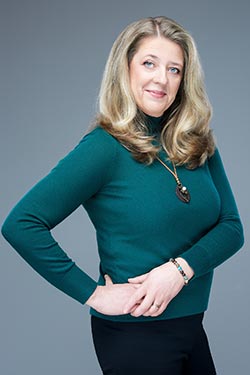Ing. Elena Čižmárová, Ph.D.
Institute of Materials Engineering, Secretary of the Innovation Center for Diagnostics and Application of Materials, Faculty of Mechanical Engineering, CTU in Prague

She studied Materials Engineering at the Faculty of Materials, Metallurgy, and Recycling at the Technical University of Košice. Since 2004, she has been working at the Institute of Materials Engineering at the Faculty of Mechanical Engineering, CTU in Prague, where she teaches courses on metallic materials, plastics, and composites. Within the Innovation Center for Diagnostics and Analysis of Materials (ICDAM), she collaborates with industrial partners.
What is your area of expertise at CTU, and what do you enjoy most about your work?
At CTU, I focus on materials engineering and collaboration with industrial partners to solve their material-related challenges.
My current scientific research involves the mechanisms and kinetics of hydrogen-induced corrosion damage, which plays a critical role in demanding environments. Another key area of my research is the development of new materials for solid-state hydrogen storage, with an emphasis on advanced metal hydrides. This research has the potential to contribute to the advancement of sustainable energy systems and the broader adoption of hydrogen as an environmentally friendly energy carrier.
What I enjoy most about my work is the ability to connect theoretical knowledge with practical results. It is amazing to see that my research not only offers new perspectives on scientific questions but also helps solve real-world problems. When I see that my work has a tangible impact and purpose, it gives me motivation to keep going.
What led you to science?
My path to science was initially somewhat accidental. During my studies, I participated in various projects and laboratory analyses, which I found very engaging. After graduating, I was offered the opportunity to continue working on one of these projects through a Ph.D. program. At that time, it was not easy for women to find a position in the industry, so I decided to stay in academia, where I could further develop my knowledge and skills.
Looking back, I realize that it was the best decision I could have made. Science allows me to tackle interesting challenges while also contributing to practical solutions that have real-world significance.
How do you balance your personal and professional life?
Nowadays, it's much easier since my children are independent. When they were younger, balancing work and family required careful planning and flexibility—I often worked or studied scientific literature late at night after they were asleep. However, I never saw it as an obstacle because I have always enjoyed and felt fulfilled by my work.
I believe that the key to successfully balancing personal and professional life is not only good time management but also having family support and a genuine passion for what you do.
Would you recommend a scientific career to high school girls? If so, why?
I would absolutely recommend a scientific career to anyone interested in continuous learning, discovering new knowledge, and working on meaningful projects. Science offers a unique opportunity to create innovations, tackle challenges, and actively contribute to a better future.
For women it is a great way to demonstrate that we can be equal partners in all professional fields—whether in industry or research. A scientific career is demanding but also incredibly rewarding and inspiring. If you have a passion for exploring the world around you, it is worth considering.